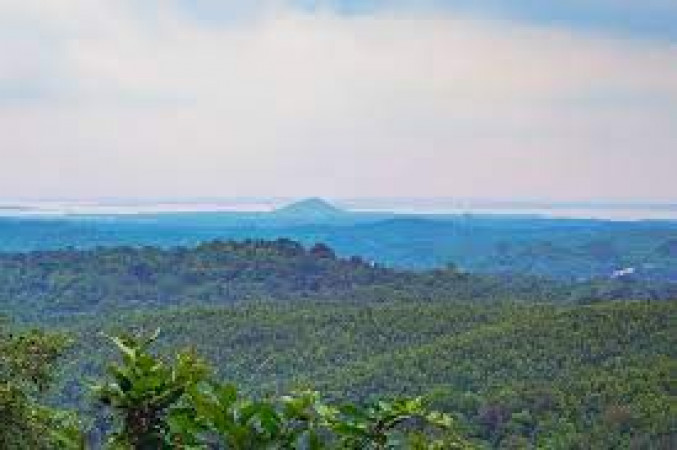
Jhilimili
Bankura . West Bengal . India
Duration
2 to 4 Days
2 to 4 Days
Best time to visit
Mar-May, Oct-Dec
Mar-May, Oct-Dec
Theme
Hill Station, Adventure
Hill Station, Adventure
Jhilimili Travel Guide
Jhilimili, a quaint village nestled in the lap of the Eastern Himalayas, is a hidden gem in the Purulia district of West Bengal, India. This offbeat destination is known for its lush greenery, stunning natural landscapes, and serene ambiance. With a rich historical background and cultural significance, Jhilimili offers a unique travel experience for those looking to explore the unexplored.Top Attractions in Jhilimili
- Baranti Reservoir
- Panchet Dam
- Ambikanagar
- Ayodhya Hills
- Jhilimili Sunset Point
Jhilimili is Famous for
Jhilimili is famous for its picturesque landscapes, serene atmosphere, and unspoiled natural beauty.Top Attractions in Jhilimili
- Baranti Reservoir
- Panchet Dam
- Ambikanagar
- Ayodhya Hills
- Jhilimili Sunset Point
What's Great about Travelling to Jhilimili?
- Perfect for nature lovers
- Peaceful and serene environment
- Opportunity for offbeat travel experience
What's Not So Great about Travelling to Jhilimili?
- Limited accommodation options
- Remote location with limited connectivity
- Limited dining options
Travel Tips for Jhilimili
- Carry sufficient cash as there are limited ATMs in the area
- Dress in layers as the weather can change quickly
- Respect the local culture and customs
Important Jhilimili trip information
- Ideal Duration: 2-3 days
- Best Time to Visit: October to March
- Nearby Airports and Railway Stations: The nearest airport is at Kolkata (220 km) and the nearest railway station is at Purulia (65 km)
FAQ's on Jhilimili
Q1: What is the best time to visit Jhilimili?
The best time to visit Jhilimili is during the spring and autumn months, from March to May and September to November. These periods offer pleasant weather with clear skies, perfect for exploring outdoor attractions like forests, valleys, and waterfalls. Avoid the monsoon season from June to August due to heavy rainfall, which can make travel challenging.
Q2: Do I need a visa to travel to Jhilimili?
Most visitors to Jhilimili will require a tourist visa to enter the country. Make sure to check with the nearest embassy or consulate for specific requirements based on your nationality. Some countries may be eligible for visa-on-arrival or visa-free entry for a limited period. It is advisable to have your visa sorted before traveling to avoid any last-minute issues.
Q3: What are the must-visit attractions in Jhilimili?
Jhilimili offers a range of must-visit attractions, including the stunning Jhilimili Hills, Jaldhaka River, Bindu Dam, and the Bhutan Ghat. Nature lovers can explore the Neora Valley National Park and the beautiful Chel Forest. Don't miss the serene Jhalong Riverside and the picturesque Godak Village for a glimpse of rural life.
Q4: Is Jhilimili a safe place to travel?
Jhilimili is generally a safe destination for travelers. However, it's advisable to take standard precautions like avoiding isolated areas at night and safeguarding your belongings. Be cautious of pickpockets in crowded tourist spots and stay informed about any local regulations or safety advisories during your visit.
Q5: What is the local currency in Jhilimili and can I use credit cards?
The local currency in Jhilimili is the Indian Rupee (INR). While credit cards are accepted in some hotels and larger establishments, it's recommended to carry cash for smaller purchases and in rural areas. ATMs are available in major towns, but it's advisable to have sufficient cash on hand, especially when traveling to remote locations.
Q6: What is the local cuisine like in Jhilimili?
Jhilimili offers a diverse culinary experience with a mix of traditional Bengali, Nepali, and Bhutanese influences. Indulge in local delicacies like momos, thukpa, phagshapa, and traditional Bengali sweets. Vegetarians can enjoy dishes like gundruk, dal bhat, and a variety of fresh fruits. Be sure to try the local teas and beverages for a taste of authentic flavors.
Q7: What transportation options are available in Jhilimili?
Transportation options in Jhilimili include public buses, shared jeeps, and private taxis for getting around the region. Renting a car or hiring a local guide is a convenient way to explore the scenic countryside. Trekking and hiking are popular modes of transportation for reaching remote areas and experiencing the natural beauty of Jhilimili.
Q8: Are there any cultural norms or etiquette I should be aware of when visiting Jhilimili?
When visiting Jhilimili, it's important to respect local customs and traditions. Dress modestly, especially when visiting religious sites or rural villages. Greet locals with a 'Namaste' and seek permission before taking photographs. Avoid public displays of affection and be mindful of cultural sensitivities. Embrace the warm hospitality of the people and immerse yourself in the rich cultural heritage of Jhilimili.
Q9: I am a travel agent. How can I buy travel leads of Jhilimili?
Register yourself as a travel agent at agents.tripclap.com and then you can buy travel leads to Jhilimili once your account is approved. For more details contact our support team at +91-8069186564 or support@tripclap.com
